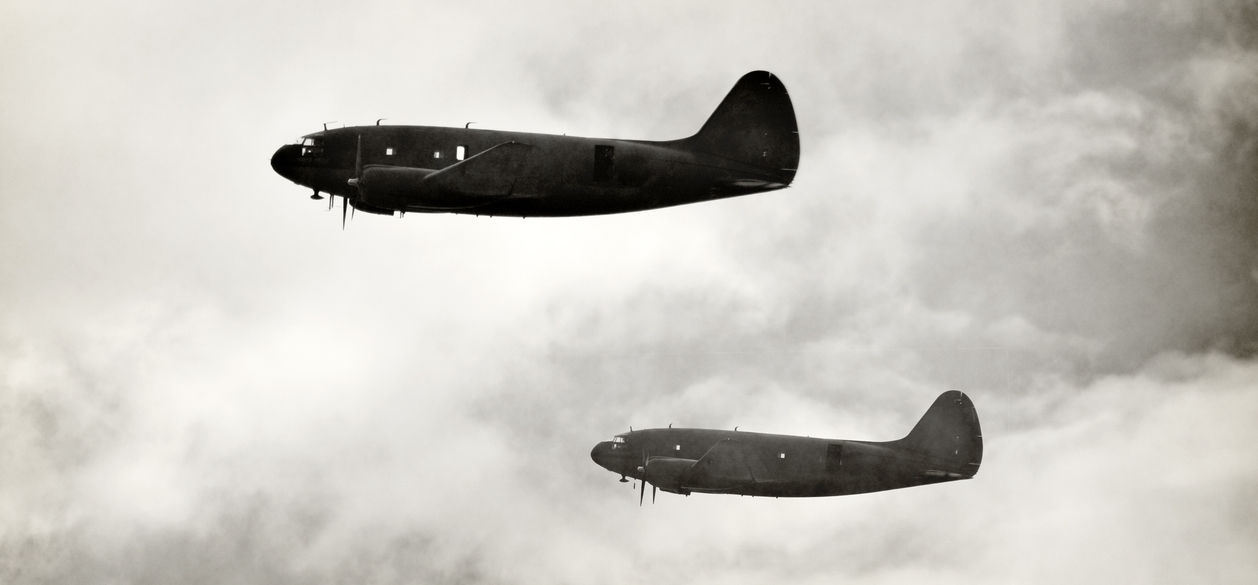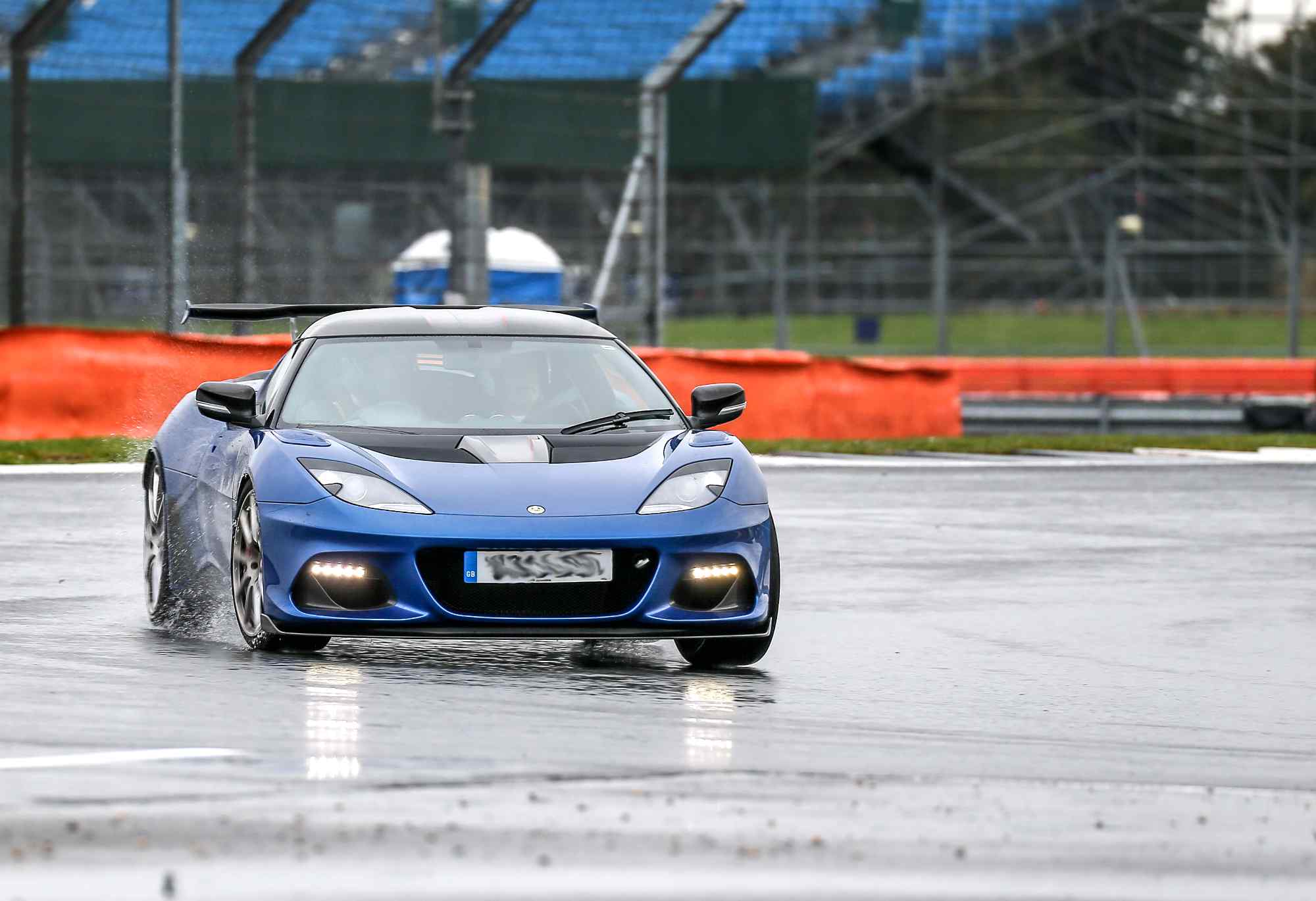

Posted: December 2, 2024 Read time: 13 mins
Once a World War II airbase, Silverstone is now a world-famous racing circuit and home to British Motorsport. Since the first Formula One Grand Prix championship race in 1948, Silverstone has hosted some of the most dramatic moments in racing history. From Ferrari’s first Grand Prix win in 1951, to Schumacher and Hill’s epic 1995 title battle and not forgetting, Hamilton’s record-breaking eighth British Grand Prix win in 2021 – Silverstone is now synonymous with Formula One.
The Northamptonshire racing circuit has undergone many transformations since its days as an RAF Bomber Base, yet its legacy lives on. Many of Silverstone’s corner names still pay homage to its past; a past that dates further back than the 1940s.
Read on to learn the origins of Silverstone’s corner names, as well as a timeline that charts the circuit’s development.
"I have always lived around an hour’s drive from Silverstone, so have always viewed it as my local circuit. I took my children there to watch racing as youngsters. Both now car and race enthusiasts, I often wonder if the sparks of their interest were kindled at Silverstone.
My first visit professionally, as an engineer mechanic was in the 80’s, maintaining my customers racing car - a Sebring bodied V8 MGB. That set the scene for more visits than I can remember. Many of our clients have experienced their first track day at the circuit - wide and open, yet technically challenging and fast, with run off and escape zones to comfort the nerves.
It feels special to drive through the entrance. As with many UK circuits, you are driving at a venue where the greats have driven before you. It requires knowledge and dedication to optimise a lap, its 3.660 mile length adding to the intensity.
It’s also been a venue for great days out. Formula One weekends providing the family with exciting entertainment. Grandchildren in tow, that’s three generations now enjoying the spectacle." Colin, Chief Instructor & Owner
| Circuit Length | 3.660 miles |
|---|---|
| First Grand Prix | 1950 |
| Number of corners | 18 |
| Circuit configurations | Grand Prix, International, National & Stowe |
| Fastest corner x Formula One | Maggotts - 190 mph |
| Slowest corner x Formula One | The Loop - 56 mph |
Silverstone’s first corner is named after the 11th Century Luffield Abbey, the remains of which were discovered nearby.
Originally, Farm was a straight section of the track, situated between Abbey and Bridge. The origin of the name is literal - the Farm Straight passed by a nearby farm. Later, it would morph into a gentle turn during the circuit’s 2010 ‘Arena’ redevelopment.
The 2010 redevelopment introduced a new section of the track and with it, came the tight right corner, named after the local village and the track’s namesake, Silverstone.
A new part of the track that didn’t exist before 2010. The Loop is what it says on the tin - a tight hairpin named after its shape. It is also the slowest corner on the track.
Aintree takes its name from another iconic British racing venue - Aintree Racecourse in Liverpool. The circuit within the racecourse hosted the Formula One Grand Prix five times between 1955-1962, with Sir Stirling Moss winning his first Grand Prix in 1955, at Aintree.
Existing as part of Silverstone’s shortest circuit configuration, the previously named National Straight was one of the airbase’s original runways. The straight was incorporated into Silverstone’s new Grand Prix layout in 2010 and renamed the Wellington Straight. A fitting name to honour the Vickers Wellington bombers that operated from the training base during the Second World War.

Named after what is widely regarded to be the first purpose-built racing track in the world – Brooklands Circuit in Weybridge, Surrey. The oval track hosted the first ever British Grand Prix on 7th August 1926.
Once the last turn of the circuit, Luffield now sits midway through the track. The long right turn is named after Luffield Abbey.
When the Royal Automobile Club organised the second Silverstone Grand Prix in 1949, they changed the previous year’s layout dramatically. They also named many of the corners that are now world famous. Woodcote was named after Wood Park, a stately home owned by the club since the first World War.
Home to the starting / finish line used in the National Circuit configuration. One of the fastest sections of the track.
Silverstone Circuit is surrounded by lush woodland and small groups of trees known as copses. The searingly fast Copse corner cuts along the edge of the old Chapel Copse woodland, hence the name.
The now iconic, weaving sequence of corners, were once independent of one another. As detailed below, in 1992 these three corners were interlinked as part of the 1992 track redevelopment.
The first turn was originally named after the nearby Maggots Moor, but with a different spelling. Similarly, Becketts was named to commemorate St. Thomas a Becket. Note, once again, the spelling difference, with only one ‘t’. Also known as Saint Thomas of Canterbury, Thomas Becket was Archbishop of Canterbury from 1162. A dispute with King Henry II over the rights of the Catholic Church led to his murder in 1170. He was later made a saint in 1173.
The 15th Century St Thomas A Becket's Chapel was knocked down during the build of Silverstone airfield in 1943. Becketts and Chapel are named after this historic landmark - the remains of which can still be found near Chapel corner.
This is another section of the track that honours its previous life as an airfield. Two of the base’s largest aircraft hangars once stood alongside what is now Silverstone’s high-speed back straight.
A wide corner, Stowe often provides much excitement at the beginning of the race as the pack jostle to overtake each other. Its namesake is the magnificent Stowe House in Buckinghamshire. Formerly the country seat of the Second Duke of Buckingham and Chandos. The stunning house and grounds have been home to Stowe public school since 1923. It’s thought that Stowe’s students were amongst the first to race around Silverstone’s disused airfield.
The penultimate corner of the track whose name has two possible origins, often a topic of debate amongst Silverstone fans. Built on an airfield, the terrain of the track is inherently flat, however, the section between Stowe and Club dips slightly, like a valley between two hills. Vale is another word for valley – a possible logical reason for the name. Another possibility could be its location - ‘Vale’ sits in a section of the track falling within the district of Aylesbury Vale.
The final flat out corner guides drivers onto the Start / Finish line. Just like Woodcote, Club’s name honours the Royal Automobile Club’s long history with Silverstone, named after their prestigious Pall Mall clubhouse in London. Since the first post-war Grand Prix, the Club’s golden Grand Prix Trophy has been awarded to the winner every year. It’s believed to have been gifted to the club by Sir Charles Rolls.
For the first time in the track’s history, part of the circuit was named after an individual. The Pit Straight was renamed after Sir Lewis Hamilton, after his record-breaking 7th win at Silverstone. Along the starting / finish straight, resides the International Paddocks and new The Hilton Garden Inn Silverstone hotel.
Perhaps the most famous configuration used by Formula 1, Formula 2, GT3 and MotoGP. The entire circuit encompasses a series of challenging corners, tight bends and fast corners.
Home to the BTCC, the National circuit unites Maggotts and Aintree to create a challenging corner . Events using this layout operate from the National Pits & Paddocks, located alongside the aptly named National Pits Straight.
This southern section of the circuit includes the Hamilton Straight and Stowe corner. Enjoyed by the likes of the Touring Car Championship (TCC) and Superkart.
Nestled within the International Circuit, the newest of the circuits was created as part of the Stowe Complex. Small but mighty - the challenging track is addictive to perfect. Used for corporate and experience days, car development and testing.
There are few things as exhilarating as taking your own pride and joy out on a world-class circuit. Silverstone operates Car and Bike Track Days, on their Grand Prix Circuit. A one of a kind opportunity to channel your inner Senna or Rossi.
Want to get the most out of your day? CAT's Track Academy courses will empower you with knowledge and technique to construct fast and safe laps. Understanding the WHY as well as the HOW, with industry leading vehicle dynamic expertise.

| Category | Driver | Vehicle | Time |
| F1 | Max Verstappen | Red Bull Racing RB16 | 1:27.097 |
| GT3 | Norbert Siedler | Lamborghini Huracán GT3 Evo | 1:58.165 |
| MotoGP | Álex Rins | Suzuki GSX-RR | 1:59.346 |
Lap times correct at the time of publishing (20 Dec 2022). Source: Wikipedia
In March 2020, Silverstone opened their motorsport Museum. The experience offers a unique mix of racing memorabilia, interactive exhibits and a top of the range sim racing set up. Created to inspire the next generation of engineers and mechanics. A mecca for any automotive enthusiast.
Earlier this year (2022) Silverstone enhanced it's offering by opening the UK's first trackside hotel. The Hilton Garden Inn Silverstone is located on the Hamilton Straight, meaning lucky guests can enjoy live racing from the comfort of their own suite.
Now so much more than a race circuit, Silverstone continues to innovate and develop.
Motorsport has long been on the cutting edge of automotive development. Silverstone's new business park hopes to be a natural continuation of this innovation. Combined with Silverstone's University Technical College, the iconic racing venue is fast positioning itself at the forefront of UK engineering.
The infamous British motor brand has set it's hopes high for a bright future in Formula One, with their new cutting edge 'F1 factory'. Based at Silverstone, the new campus will house the team's design, manufacture and testing departments, as well as their own wind tunnel.
Call: 01234 757 633
Email: info@catdrivertraining.co.uk
CAT Driver Training is the fast way to develop & improve authentic dynamic driving skill, technique & knowledge from the Best. OEM recognised driver training for individuals & the motor industry. As the leading UK based independent advanced performance driving skills company, we exist to make your driving experience even better. Explore your cars potential, fulfill your own. Coaching advanced road & track skills, safety driver training courses for individual driving enthusiasts & advanced driving for all facets of the motor industry. The only training company resident within UTAC's Millbrook Proving Ground in Bedfordshire, within easy reach of London, & all surrounding counties: Hertfordshire; Buckinghamshire; Oxfordshire; Nottinghamshire; Cambridgeshire; Norfolk; Suffolk; Essex; & Surrey. Clients travel from the World over & the UK to learn from the authentic evidence based dynamic driving & vehicle dynamic experts. | All Rights Reserved | Copyright 2005 – 2025
Some of the links we use are affiliate links. This means that, at no cost to you, CAT will earn an affiliate commission if you click through the link and finalise a purchase.
Designed by WHP
Coded and built by Prominent Media